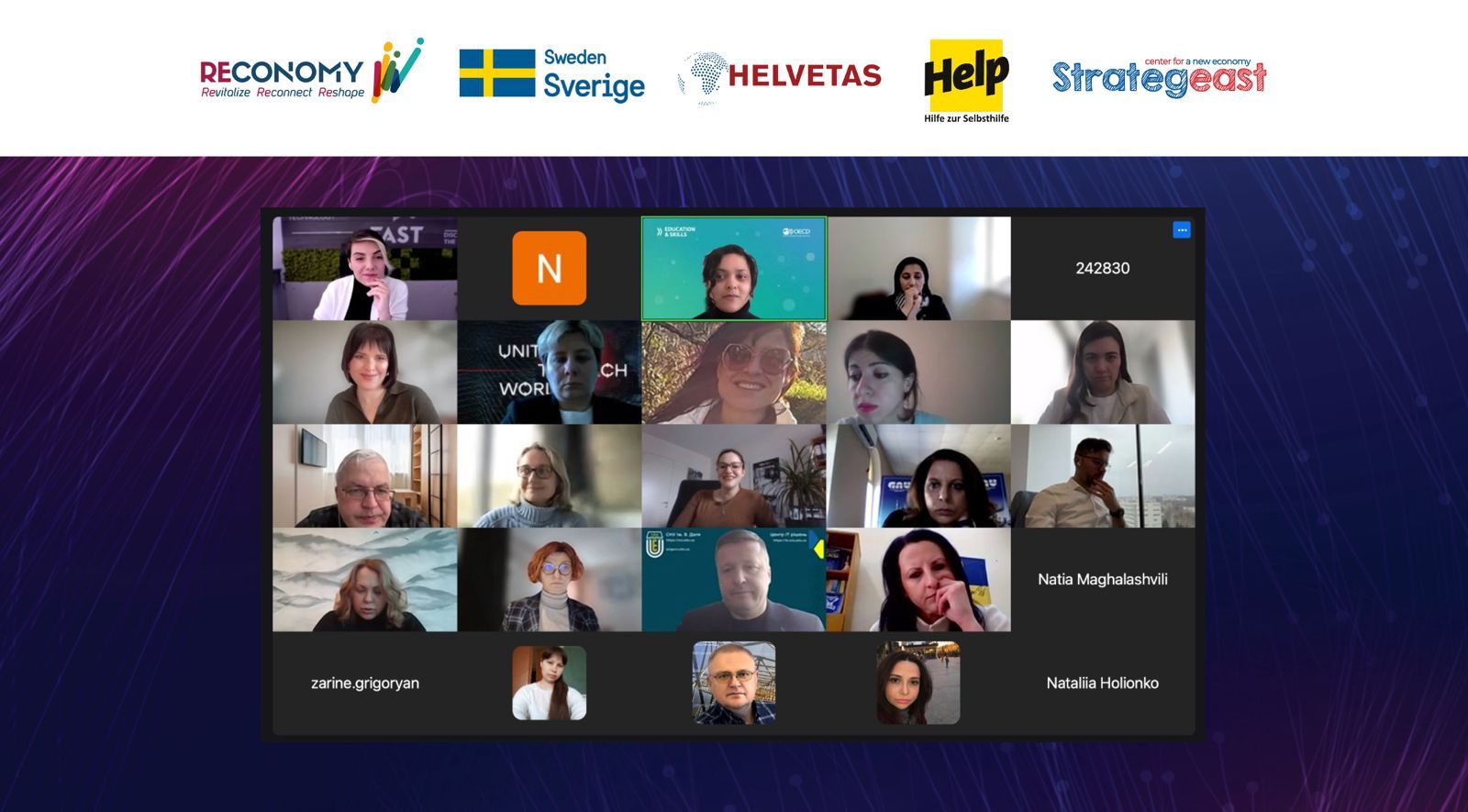On February 27, StrategEast hosted a high-level roundtable discussion on AI in Education: Global & Regional Perspectives, bringing together experts from across the world to explore the transformative impact of artificial intelligence on education. The event was part of the AI Policy Dialogue Initiative, launched by StrategEast in partnership with RECONOMY*, to foster discussions on AI governance, ethics, and sectoral applications across Ukraine, Moldova, Georgia, and Armenia.
The roundtable featured distinguished speakers, including Hanna Myshko, Regional Director for Ukraine, Moldova, and the Gulf states, StrategEast; Shivi Chandra, Policy Analyst, OECD Project on AI & the Future of Skills; Clara Hawking, Co-Founder & Executive Director of Kompass Education; Tatiana Alexeev, International Partnerships Manager at ATIC (Moldovan Association of ICT Companies); Suzanna Shamakhyan, Executive Director, Foundation for Armenian Science and Technology, on AI Education and also opportunities which AI provides for education based on Armenian experience; Ruso Sanadze, Alte University, Dean of IT school, Head of Innovation and Entrepreneurship Center at Alte University, Associate Professor at Tbilisi State University; Nino Lolashvili, Vice Dean of school of IT and Engineering at GAU (Georgian American University), Professor; Nadiya Omelchenko, Vice President of IT-Integrator, Founder of the Educational Initiatives Fund, business mentor, ambassador of STEM education in Ukraine; Anastasia Petrova, Strategic partnerships coordinator at Beetroot Academy, a Swedish-Ukrainian EdTech company.
The discussion covered AI’s role in shaping the future of education and how global frameworks are guiding responsible AI adoption. Speakers emphasized the importance of ethics, equity, and governance, ensuring that AI tools in education align with principles of transparency, accountability, and accessibility. Regional perspectives from Ukraine, Moldova, Georgia, and Armenia highlighted the challenges and opportunities in implementing AI-powered learning tools, teacher training, and digital literacy programs. The discussion also explored the importance of public-private collaboration, with experts underscoring the need for strong partnerships between academia, industry, and policymakers to create sustainable AI education ecosystems.
Shivi Chandra presented insights from the OECD’s AI and the Future of Skills project, which evaluates AI capabilities in education. Clara Lin Hawking outlined AI governance frameworks, highlighting the need for transparency and accountability in AI-driven learning tools. Ruso Sanadze and Nino Lolashvili shared their experiences implementing AI in Georgian universities, focusing on generative AI courses and chatbot development. Suzanna Shamakhyan emphasized Armenia’s AI talent pipeline and efforts to integrate AI education into high school curricula. Hanna Myshko delivered the opening remarks, provided an introduction, and moderated the discussion.
Nadiya Omelchenko highlighted the role of AI in enhancing STEM education. Anastasia Petrova shared insights on providing technical and practical education, emphasizing inclusivity for women and individuals outside major cities. Tatiana Alexeev discussed the launch of the Tekwill program in 2020, which aims to deliver quality education and future-ready skills to all students in Moldova, regardless of their location.
*RECONOMY is an inclusive and green economic development program of the Swedish International Development Cooperation Agency (Sida), implemented by HELVETAS Swiss Intercooperation in partnership with Help-Hilfe zur Selbsthilfe and others in the Eastern Partnership and the Western Balkans countries.




